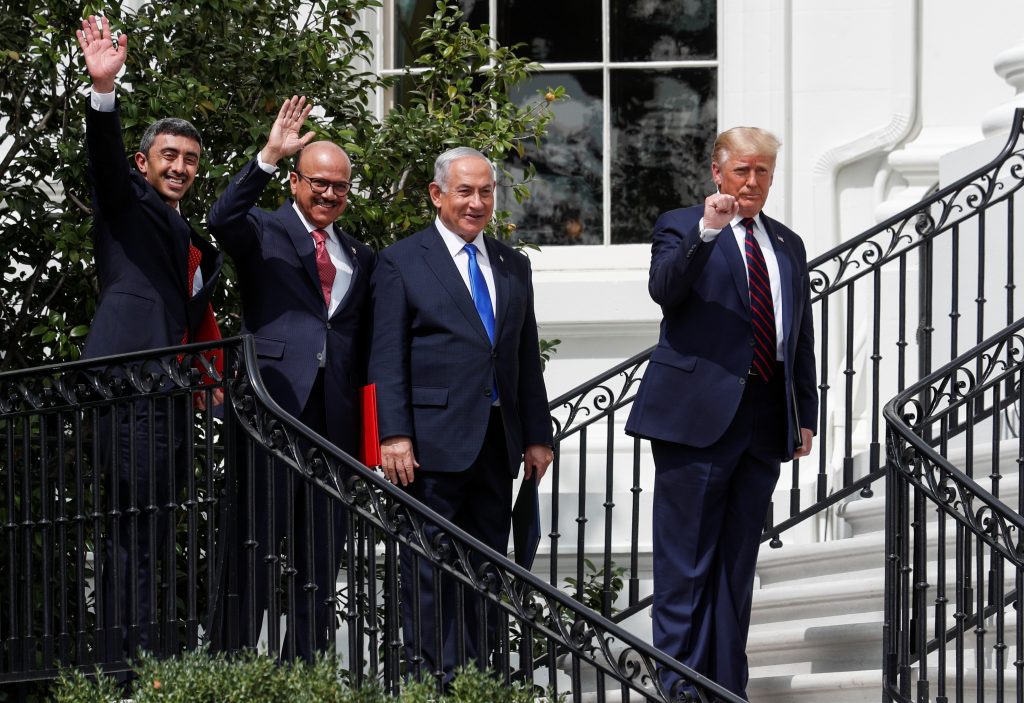Peace will pull the rug from under Israel’s hard-liners
https://arab.news/5my9h

In the fog of years of anger, it is perhaps easy to lose sight of the fact that Israel and the Israeli government are two different things. The extremists who defend the government want us to combine the two so that they can point fingers at us and make false and ugly accusations of anti-Semitism.
They argue that any criticism of Israel is anti-Semitic. Sadly, we fall into the trap of making it easy for them to make that argument when we, as Palestinians championing our rights in historic Palestine, fail to distinguish between the two entities.
Israel was founded in 1948. I wasn’t around then but I understand why my father and his family opposed its creation. They wanted a single state that was equal and fair to all religions. That is not what was formed when the UN recognized the partition of Palestine and the creation of two rival areas: One Jewish and the other non-Jewish.
But Israel was founded nonetheless. More than 70 years of conflict has driven that reality home for the majority of Palestinians, who are a peace-loving people that wants justice. They are willing to accept the reality and embrace a two-state solution, which was rejected by the Arabs in 1948. It was only “recently” accepted during the failed Oslo Peace Accords and the famous and inspiring 1993 handshake between Israeli Prime Minister Yitzhak Rabin and Palestine Liberation Organization Chairman Yasser Arafat, my personal hero.
Israel’s existence has been recognized internationally, as well as by the nearly 2 million Christian and Muslim Palestinians who live in the “Jewish state.” Those Arabs make up more than 20 percent of the country’s population, but they are, unfortunately, treated as second-class citizens — not by the mere existence of the state, but by the governments that have ruled Israel.
However, those Palestinians have a significant voice in defining Israel’s policies. The Joint Arab List holds 15 of the 120 seats in the Israeli parliament, the Knesset, making it the third-largest grouping behind coalition government partners the right-wing Likud and the centrist Blue and White. The number of Arab Knesset members has the potential to grow, increasing their influence and political empowerment. One day, they will change Israel’s government. But they shouldn’t have to do it alone.
Palestinians deserve to have a state and they deserve to have all of their civil and human rights respected. Israel’s governments have not lived up to the ideals that were laid out in the country’s declaration of statehood of May 14, 1948. They have passed more than 60 laws that treat non-Jews differently to Jews. Many of those differences are significant.
Palestinians can continue to fight these discriminatory government policies, but they need to do it smartly, by focusing their criticisms on Israel’s government. That means we Palestinians should not oppose Israel’s treaties with the UAE and Bahrain, for example. What we should do instead is focus our opposition on the conduct of Israel’s government.
Much of Israel’s Jewish majority lives in fear due to the endless conflict and the violent actions of extremists on both sides — that is why so many of them choose to vote for the likes of the Likud party. However, the UAE and Bahrain peace accords could be the first steps toward changing that mindset and they could, perhaps even by the time of the next election, prompt a shift to the left in the Knesset.
The UAE and Bahrain peace accords could prompt a shift to the left in the Knesset.
Ray Hanania
The election of right-wing Israelis has been fueled by the fear of continued conflict with the Arab world. Could it be that, with a growing peace, fear will recede and more moderate Israeli leaders will be voted into office?
Israel’s hard-line, anti-Palestinian peace governments thrive on the continuation of conflict. As long as there is conflict, these right-wing parties find empowerment. Take away that conflict and you pull the rug from underneath them.
It is up to the leaders of the Arab world to encourage this change as they forge ahead with peace. As peace partners, the UAE and Bahrain have the ability to pressure Israel to offer justice and fairness for the Palestinians, the sacred heart of the Arab people.
If that happens, Israel’s government could change, and that would be a good thing for peace.
- Ray Hanania is an award-winning former Chicago City Hall political reporter and columnist. He can be reached on his personal website at www.Hanania.com. Twitter: @RayHanania









































